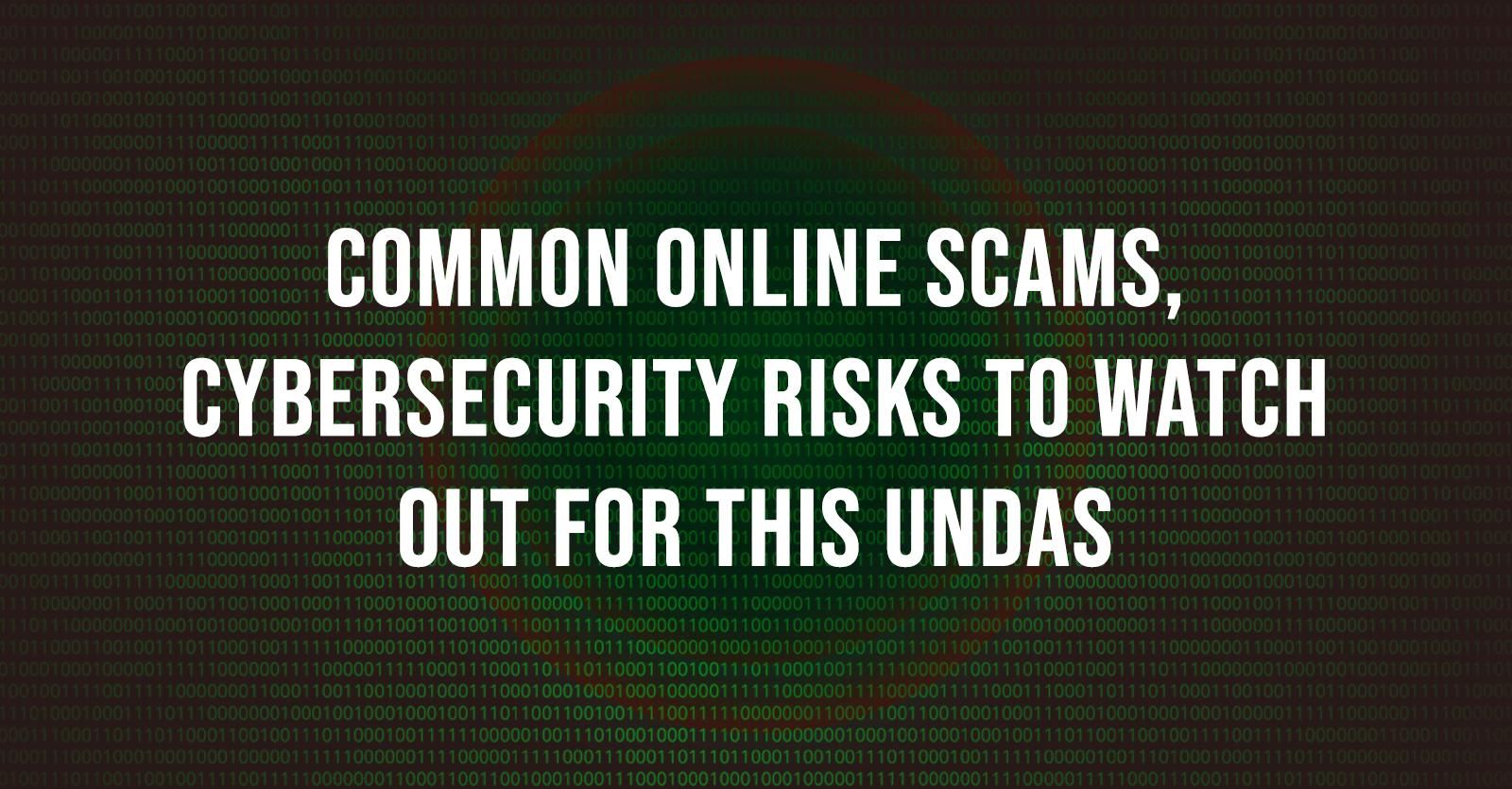
The Cybercrime Investigation and Coordinating Center (CICC) has warned the public against various online scams and cybersecurity risks during the holiday season for the observance of All Saints’ Day and All Souls Day’.
According to CICC Executive Director Undersecretary Alexander Ramos, cyber criminals usually take advantage of public holidays or when people are away to prey on the victims.
Here’s a CICC list of the most common online scams and risks to watch out for this holiday season:
Open and unsecured wifi network
The CICC said any device connected to an open and unsecured wifi network is vulnerable to attackers as gadgets can be susceptible to man-in-the-middle (MTM) attacks through open wifi connections.
“An attacker will intercept the communication flow between your handsets and browser and steal information and potentially [allow] your device to be hijacked,” Ramos said.
The public is advised to avoid using public wifi and to use mobile networks instead to prevent identity and financial theft by hackers.
Fake e-wallet apps
According to the CICC, fake e-wallet apps “look like legitimate e-wallet apps” that can access your real e-wallet credentials once they are downloaded and installed.
Ramos advised the public to only download e-wallet apps from legitimate application stores.
Fake customer service
Fake customer service numbers are fake phone numbers, email addresses, or even Facebook accounts that pretend to be banks and e-wallet companies.
“These fake customer service channels will target your personal information and money. Always check the source of the channel if it’s legitimate or not,” Ramos said.
Tech support scams
A fake tech support scam uses a phone call to scare you that there is a problem with your accounts for banking, e-commerce, or e-wallet.
The scammers then ask for your personal information to settle the issues concerning your account.
To avoid this scam, it is advisable to ignore calls from unknown numbers, even those that claim to be from a bank or any online financial platform, and to never provide personal information and codes.
Phishing
Among the commonly reported scam incidents include phishing, which is done usually by hackers through using emails and text messages containing links.
Scammers pretend to be legitimate websites and companies in their names, and the links they include in their messages can compromise your banking, e-wallet, ecommerce accounts.
“Never click links from unknown emails or text messages because these are phishing scams that can lead to account take over by stealing personal information, account name and passwords. Worse, many may also include malware,” Ramos said.
Fake online shopping stores
These are unregistered stores in e-commerce sites and social media platforms that sell fake or non-existent products.
“Never believe a too good to be true sales offers. If the product is too cheap then it must be fake or worse, it does not exist,” the CICC chief said.
“Always check the legitimacy of the seller and never transact outside the ecommerce site,” he advised.
Package scams
These are deceptive emails and text messages about intercepted package deliveries that lure victims into giving there personal details, money, and data.
Scammers usually trick victims into clicking a link or attachment with malware.
“Always verify the sender or email address. Make sure that you don’t schedule a delivery when you are not home. Never entertain messages or calls from unknown senders,” he said.
Dugo-Dugo Gang
This modus operandi of criminals in this scam involves calling a certain household to report that a member of the household or the owner of the house is in an accident or emergency situation.
Perpetrators would then ask for money from the target victim, claiming that the person involved in their made-up accident scenario needs the money.
“This is the most conventional that continues to victimize a lot of people. People left in the [house] should always have a way to contact the homeowner to verify report of accidents and other emergencies,” said Ramos.
Where to report scammers?
If you’ve received or encountered a malicious link, text message, call, or any suspected scam, you may contact the Inter-Agency Response Center (I-ARC) Hotline 1326, or through 0947-714-7105 for Smart users, 0966-976-5971 for Globe, and 0991-481-4225 for DITO.
The public may also report to CICC through messaging its Facebook page at https://www.facebook.com/CICCgovph, or through its Scam Watch Pilipinas website https://scamwatchpilipinas.com/.
-ag
